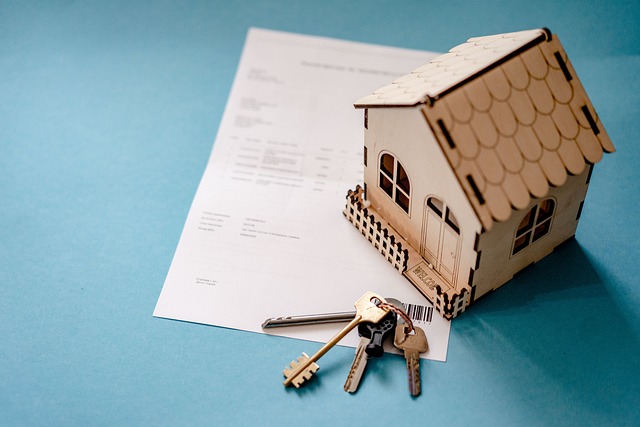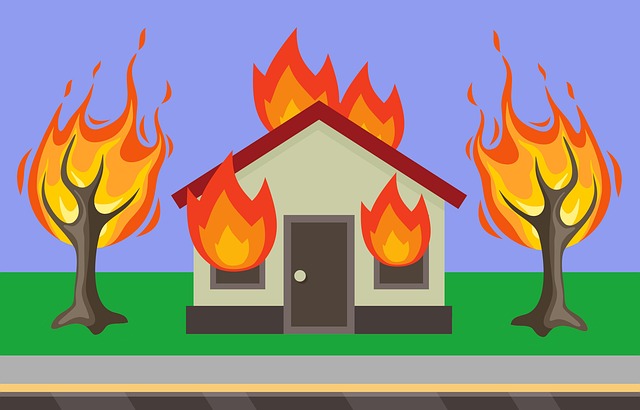Property insurance is a critical safety measure, protecting individuals and businesses from financial losses due to unforeseen events like fires, theft, and natural disasters. It offers comprehensive coverage for physical structures and personal belongings, providing peace of mind, quick assistance during crises, and support for recovery without added financial strain. When choosing a policy, tailor it to specific needs, compare plans based on coverage, deductibles, and limits, and consider optional coverages like replacement cost vs. actual cash value. Key components include physical asset coverage, alternative living expenses, liability coverage, and clear exclusions. After damage, filing a claim involves assessing and documenting loss, contacting the provider, and efficient communication for faster repairs or replacements. Policyholders should be aware of potential exclusions, such as natural disasters and neglectful actions, and understand deductibles to effectively manage their insurance. Regularly reviewing coverage and taking preventive measures ensures optimal protection for property investments.
Looking to safeguard your most valuable assets? Understanding Property Insurance is crucial. This comprehensive guide dives into the essentials of protecting your home and belongings through property insurance. From deciphering policy lingo like “covered perils” and “deductibles” to navigating claims processes, we’ll explore the key components ensuring thorough protection. Learn about various property loss scenarios, from fiery blazes to theft and natural disasters, equipping you to make informed decisions when choosing the right property insurance policy for your needs.
Understanding Property Insurance: What It Covers and Its Benefits

Property insurance is a crucial safety net for individuals and businesses, protecting them from potential financial losses due to unforeseen events. It offers comprehensive coverage for various risks associated with properties, ensuring peace of mind in an unpredictable world. When you purchase property insurance, you’re not just buying protection; you’re gaining access to resources that can help rebuild or replace your assets if they suffer damage or are destroyed.
The benefits extend beyond financial compensation. Property insurance provides a sense of security and stability by offering quick assistance during times of crisis. It covers not only physical structures but also personal belongings, ensuring that individuals and businesses can recover from events like fires, thefts, natural disasters, or accidental damage. This protection enables policyholders to navigate challenging situations with support, allowing them to focus on rebuilding their lives and properties without the added burden of financial strain.
Types of Property Loss: Fire, Theft, Natural Disasters

Property loss can arise from various unforeseen circumstances, and understanding different types of losses is crucial when considering property insurance. One of the most common and devastating forms is fire. Whether it’s a kitchen accident or an electrical malfunction, fires can cause extensive damage to homes and businesses. Property insurance often covers the cost of rebuilding and replacing items lost in a fire.
Theft is another significant concern for property owners. From valuable collectibles to everyday belongings, the loss or theft of personal possessions can be emotionally and financially straining. Comprehensive property insurance policies typically include coverage for stolen items, providing peace of mind and financial protection against such incidents. Additionally, natural disasters like hurricanes, floods, and earthquakes pose unique risks to properties in specific regions. These events can lead to substantial damage, and property insurance plays a vital role in helping individuals and businesses recover by offering compensation for repairs or rebuilding efforts.
How to Choose the Right Property Insurance Policy

When selecting a property insurance policy, it’s crucial to consider your specific needs and the value of your assets. Start by assessing the type of coverage required—whether it’s for your home, business, or both. Property insurance policies vary in terms of what they cover; some may include protection against natural disasters like floods or earthquakes, while others might offer comprehensive coverage for a wide range of risks. Compare different plans and their deductibles, which represent the amount you’ll pay out-of-pocket before insurance kicks in. A lower deductible means higher premiums but could save you money in the event of a claim.
Additionally, review the policy’s limits—the maximum amount the insurer will pay for specific types of damage or loss. Ensure these align with the actual value of your property and belongings to avoid underinsurance. Consider additional coverage options like replacement cost vs. actual cash value, which can make a significant difference in the event of a total loss. Read the policy document carefully, paying attention to exclusions and conditions, as certain events might not be covered without an add-on rider.
Key Components of a Comprehensive Property Insurance Coverage

When considering property insurance, understanding the key components of a comprehensive policy is essential. The first critical aspect is property insurance coverage itself, which protects your physical assets against damages or losses due to various perils like fire, theft, vandalism, natural disasters, and more. This includes not just the structure of your property but also any personal belongings within it.
Additionally, a robust policy should include provisions for alternative living expenses during the period of restoration after a covered loss. This ensures that you’re compensated for additional costs like hotel stays, meals, and other living expenses while your property is being repaired or rebuilt. Other valuable components may include liability coverage, which protects against claims for damages or injuries caused to others on your property, and specific exclusions or limitations to understand what’s not covered under the policy.
Filing an Insurance Claim for Property Damage

When your property experiences damage due to unforeseen events like natural disasters, accidents, or vandalism, filing an insurance claim for property damage is a crucial step in the recovery process. The first action is to assess the extent of the loss and gather relevant information. This includes taking photos or videos of the affected areas, keeping records of any repairs or replacements needed, and collecting details about the incident from witnesses or law enforcement if applicable.
Once prepared, you can initiate the claims process by contacting your insurance provider. They will guide you through filling out a claim form, which requires accurate information about the damage, the policy details, and personal data. It’s essential to maintain clear communication with your insurer, providing them with any additional documentation they may request, to ensure a smoother claims settlement. Remember, efficient property insurance claim management can facilitate faster repairs or replacements, helping you restore your property to its previous condition.
Common Exclusions in Property Insurance Policies

Property insurance policies are designed to protect against unexpected events, but it’s crucial to understand what’s covered and what’s excluded. Common exclusions in property insurance policies can leave gaps in coverage, leaving homeowners or business owners vulnerable to significant financial losses. Among these, natural disasters like floods, earthquakes, and hurricanes often fall outside the scope of standard policies. These events are typically addressed by specialized coverages that require additional purchases.
Another frequent exclusion is damage caused by war, terrorism, or civil unrest. Even though these incidents are rare, insurance companies may not provide coverage for property losses stemming from such events due to their high potential costs and legal complexities. Additionally, policies often exclude losses arising from neglect, such as failing to secure a home against burglary or neglecting to maintain a fire safety system. It’s essential to carefully review an insurance policy to ensure it aligns with your needs and understands what’s not covered.
The Role of Deductibles in Property Insurance

Deductibles play a pivotal role in property insurance, acting as a financial buffer between policyholders and insurers. They represent the amount that the insured party agrees to pay out-of-pocket before the insurance coverage kicks in. By setting a deductible, insurers encourage responsible risk management, as policyholders are incentivized to prevent or mitigate potential losses below this threshold. This proactive approach can lead to more sustainable claims patterns and potentially lower premiums for those who maintain a good track record.
In the event of a property loss, the deductible is subtracted from the total claim amount. This means that if your insured property suffers damage, you will be responsible for paying the initial deductible before the insurance company covers the rest. Understanding deductibles is crucial when navigating property insurance policies, as it directly impacts how much financial protection you receive and the potential out-of-pocket expenses you may incur during a claim.
Staying Protected: Tips for Maintaining Your Property Insurance

Staying protected is paramount when it comes to managing your property and its potential risks. One crucial aspect often overlooked is maintaining your property insurance coverage. Regularly reviewing your policy is essential; ensure it aligns with your current assets and needs. As your property’s value evolves, so should your insurance plan. Keep detailed records of significant purchases or renovations to accurately reflect these changes in your coverage.
Additionally, take preventive measures to reduce potential losses. Simple steps like installing smoke detectors, securing valuable items, and maintaining a well-kept yard can significantly minimize risks. Remember, these efforts not only safeguard your belongings but also contribute to fairer insurance rates. Stay proactive, stay informed, and let your property insurance be a reliable partner in safeguarding your investment.
